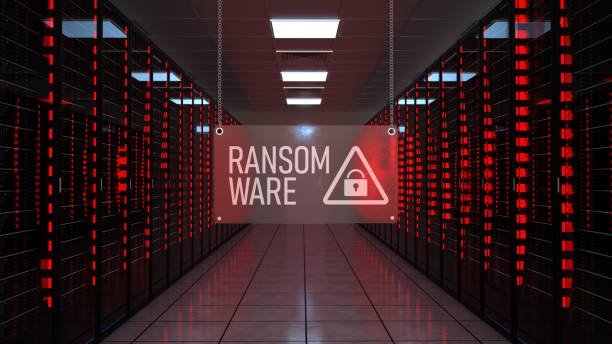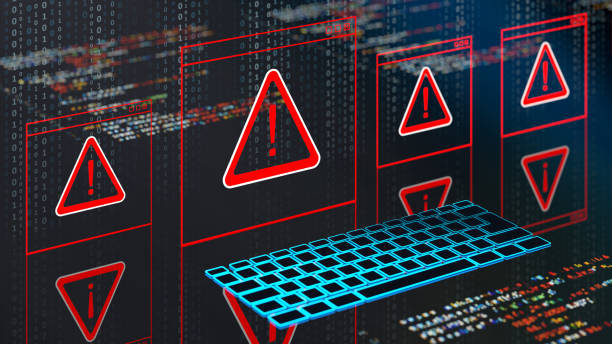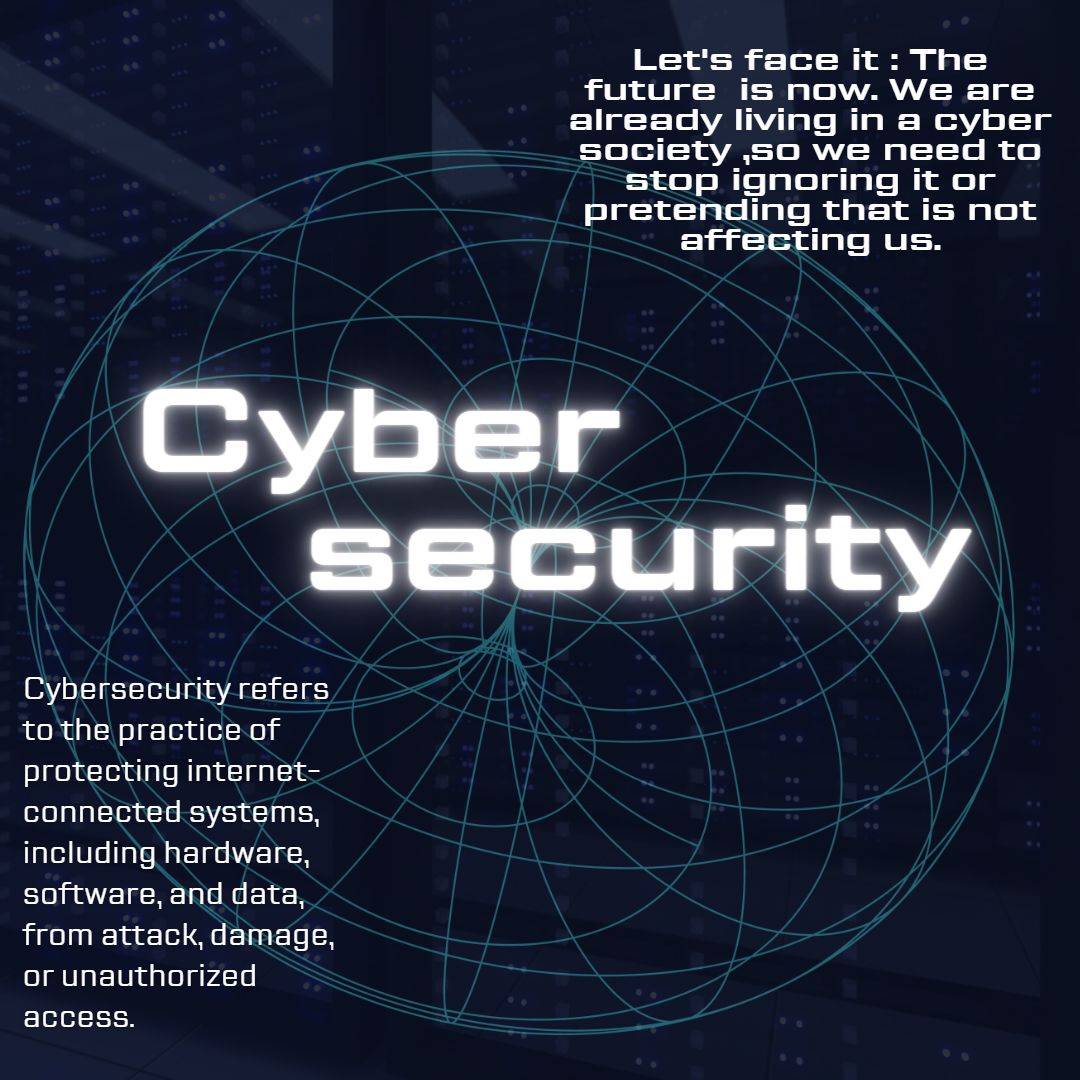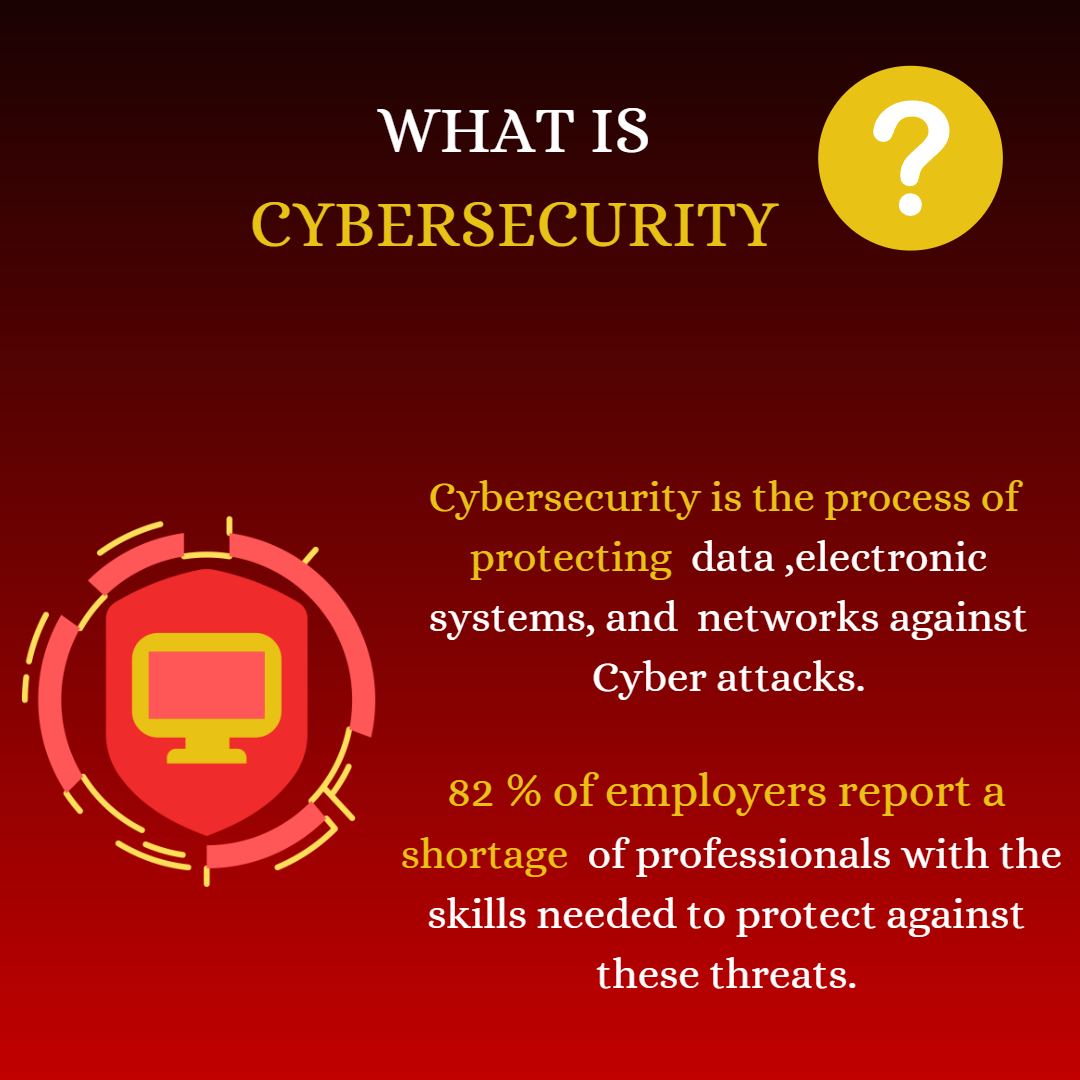Data recovery is the process of retrieving data from damaged, corrupted, or otherwise inaccessible storage devices. This could involve various types of storage media, including hard drives, solid-state drives, RAID systems, memory cards, and more.
Data recovery aims to restore lost files due to hardware malfunctions, accidental deletions, or software issues. Techniques used in data recovery can vary from software-based solutions to intricate hardware repairs, depending on the nature and severity of the data loss. If you have lost your data, you can file a complaint or seek assistance through the pankhs.com website for expert help and support.
It is refers to the process of retrieving and restoring data that has become inaccessible due to various issues. This can include data lost from physical damage to storage devices, such as hard drives or SSDs, as well as logical failures like file system corruption or accidental deletions. The process involves different methods depending on the nature of the problem, including using specialized software to recover lost files or performing physical repairs on damaged hardware. Effective data recovery aims to restore critical information while preserving data integrity and minimizing the impact of data loss.
Key Components of Data Recovery
Assessment: Evaluating the extent of data loss and diagnosing the condition of the affected storage device. This includes identifying the type of failure—whether it’s logical or physical.
Backup Creation: Before attempting recovery, creating a backup or disk image of the damaged device to prevent further data loss and ensure a safe recovery process.
Recovery Tools: Utilizing specialized software tools designed to recover deleted files, repair corrupted file systems, and retrieve data from damaged sectors.
Hardware Repair: Addressing physical damage to storage devices, such as replacing faulty components like read/write heads or circuit boards, often in a cleanroom environment to prevent further damage.
Logical Recovery: Employing techniques to address issues like file system corruption, partition loss, or accidental deletions by reconstructing or repairing the file system and metadata.
Data Extraction: Recovering the accessible data from the storage medium and verifying its integrity to ensure that it is usable and complete.
Data Validation: Checking the recovered data for accuracy and completeness to ensure that the files are intact and functional.
Preventive Measures: Implementing strategies to avoid future data loss, such as regular backups, proper storage device maintenance, and security measures to protect against malware.
Consultancy Services: For expert guidance and personalized assistance, individuals and organizations can seek consultancy from our organization by visiting Consultancy for more information.

Data recovery is the process of retrieving lost, inaccessible, or corrupted data from storage devices such as hard drives, SSDs, or memory cards. It is used when data becomes unreachable due to hardware malfunctions, accidental deletions, software issues, or file system corruption. The recovery process may involve using specialized software to restore lost files or performing hardware repairs on physically damaged devices. Techniques vary depending on the severity of data loss and the type of storage medium involved. Effective data recovery aims to restore important files while preserving data integrity. For expert assistance with data recovery, contact us.
Types of Data Loss
Accidental Deletion: Files or folders are unintentionally deleted by users, often resulting in loss of important data. This can be mitigated by using data recovery tools or seeking professional assistance from pankhs.com.
Formatting: When a storage device is formatted, all data on it is erased. This can happen during system reinstallations or when setting up new devices. If you need help recovering data from a formatted drive, contact us.
Hardware Failure: Physical damage to storage devices, such as hard drive crashes or SSD failures, can lead to data loss. Specialized hardware repair and recovery services are available from our experts.
File System Corruption: Corruption of the file system can make data inaccessible. This may occur due to improper shutdowns, software issues, or malware. Our data recovery specialists can help restore your files.
Virus/Malware Attacks: Malicious software can corrupt or encrypt data, making it unusable. Recovery often requires removing the malware and restoring data from backups. Our team can assist with malware-related data recovery.
Accidental Overwriting: When new data is saved over existing files, it can result in loss of the original data. Data recovery techniques can sometimes restore overwritten files; for assistance, get in touch with us.
Partition Loss: Loss of partitions due to accidental deletion or corruption can make the data on those partitions inaccessible. Our organization offers solutions for partition recovery.
System Crashes: Operating system failures or crashes can render data inaccessible. Professional data recovery services can often recover data from systems that won’t boot. Contact our recovery experts for assistance.
Natural Disasters: Events such as floods, fires, or earthquakes can physically damage storage devices, leading to data loss. We provide recovery services for disaster-affected devices.
User Errors: Mistakes such as incorrect file transfers or configuration changes can result in data loss. Our team is equipped to handle various user error scenarios and assist with recovery.
Software-Based Recovery
Data Recovery Software: These tools scan storage devices for deleted files and attempt to recover them. Examples include Recuva, EaseUS Data Recovery, and Disk Drill. For personalized assistance with software-based recovery, contact us.
File System Repair: Software tools can repair corrupted file systems to restore access to lost files. Tools like CHKDSK for Windows and Disk Utility for macOS are commonly used. If you need help with file system repair, reach out to our experts.
Partition Recovery: Specialized software can recover lost or deleted partitions, allowing access to data that was previously inaccessible. Tools like MiniTool Partition Wizard and AOMEI Partition Assistant can help. For recovery services, consult our team.
Logical Recovery Tools: These tools focus on recovering data lost due to logical errors, such as accidental formatting or file system corruption. Examples include Stellar Data Recovery and R-Studio. For assistance with logical recovery, get in touch with us.
Deep Scan Recovery: Advanced recovery software performs a deep scan of the storage media to locate and recover files that standard scans might miss. For expert advice on deep scan recovery, contact our specialists.
File Preview and Recovery: Many data recovery tools allow users to preview files before recovering them, ensuring that only desired files are restored. Tools like Disk Drill offer this feature. For help with file preview and recovery, reach out to us.
RAID Recovery Software: Software designed for RAID systems can reconstruct lost data from failed RAID configurations. Tools like ReclaiMe Free RAID Recovery can be used for this purpose. For RAID recovery support, consult with our team.
Email Recovery: Specialized software can recover lost or deleted emails from email clients like Outlook and Thunderbird. Tools like EaseUS Email Recovery and Kernel for Outlook are available. For email recovery services, contact us.
Encrypted Data Recovery: Software can recover data from encrypted drives, though it often requires the correct decryption keys. Tools like Passware or ElcomSoft can assist with this. For help with encrypted data recovery, reach out to our experts.
Cloud Data Recovery: Some software solutions are designed to recover data from cloud storage services like Google Drive or Dropbox. For assistance with cloud data recovery, get in touch with us.
Recovery from SSDs: Specialized tools address issues with SSDs, including data recovery from drives with wear leveling or TRIM functions. Tools like EaseUS Data Recovery Wizard can be used. For SSD recovery support, consult our specialists.
Preview and Selective Recovery: Software tools often allow for selective recovery, where users can choose specific files or folders to restore rather than recovering everything. For guidance on selective recovery, contact our team.
**Digital forensics** is the discipline of recovering, analyzing, and preserving digital evidence from electronic devices in a way that is admissible in legal proceedings. It involves systematically identifying, collecting, and examining data from sources such as computers, smartphones, and servers to uncover information related to criminal activities, security breaches, or internal investigations. The process ensures that evidence is handled and documented meticulously to maintain its integrity and validity. Digital forensics plays a crucial role in supporting legal cases, ensuring compliance, and resolving security incidents. For expert help with digital forensics, contact our team.

Hardware-Based Recovery
Diagnosis of Physical Damage: Assessing the extent of physical damage to storage devices such as hard drives or SSDs is the first step in hardware-based recovery. This includes examining mechanical failures or electrical issues. For expert diagnosis and repair, contact our team.
Cleanroom Repairs: For hard drives with severe physical damage, repairs are often conducted in a cleanroom environment to prevent contamination. This includes tasks like replacing read/write heads or fixing damaged platters. For cleanroom repair services, reach out to us.
Head Replacements: In cases where a hard drive’s read/write heads are damaged, they can be replaced with functional ones. This process requires precision and specialized equipment. For assistance with head replacements, consult our experts.
PCB Repair and Replacement: The printed circuit board (PCB) of a storage device can sometimes fail, requiring repair or replacement. This involves diagnosing and fixing electrical faults or replacing the PCB entirely. For PCB repair services, get in touch with us.
Data Extraction from Physically Damaged Drives: Extracting data from hard drives or SSDs that have suffered physical damage, such as water or fire damage, often involves specialized techniques. For data extraction support, contact our specialists.
RAID Reconstruction: When RAID arrays fail, hardware-based recovery can involve reconstructing the RAID configuration to recover data. This may require rebuilding the RAID set from multiple drives. For RAID reconstruction services, reach out to us.
Chip-Off Recovery: For devices with severe damage, chip-off recovery involves removing memory chips from the storage device and reading data directly from the chips. This technique is used for both flash memory and hard drives. For chip-off recovery assistance, consult with our team.
Firmware Repair: Storage devices sometimes fail due to corrupted or malfunctioning firmware. Repairing or reprogramming firmware can restore device functionality and recover data. For firmware repair services, get in touch with our experts.
Power Supply Issues: Addressing problems related to the power supply of storage devices, such as voltage irregularities or damaged connectors, is crucial for hardware recovery. For help with power supply issues, contact our specialists.
Professional Data Recovery: In cases of complex hardware failures or severe damage, professional data recovery services may be required to recover data effectively. Our organization provides comprehensive recovery solutions for various hardware issues. For professional data recovery, reach out to us.
Digital Forensics Overview
Digital forensics is the science of recovering and analyzing digital evidence in a way that is legally admissible. It involves the meticulous collection, preservation, and examination of digital data from devices such as computers, smartphones, and servers. Digital forensics is crucial in criminal investigations, corporate security, and legal proceedings where electronic evidence plays a key role.
is the field dedicated to the recovery, analysis, and presentation of digital evidence in a manner that is legally admissible. It involves collecting data from electronic devices such as computers, smartphones, and servers to uncover evidence related to criminal activities, security breaches, or legal disputes. The process includes careful evidence handling to maintain integrity, detailed data analysis to extract relevant information, and comprehensive reporting to support investigations. Digital forensics is crucial for solving crimes, investigating internal misconduct, and ensuring compliance. For expert assistance and support in digital forensics, contact our organization.
Forensic Evidence Collection
Identification of Evidence: The first step is to identify all potential digital evidence on electronic devices that may be relevant to the investigation. This includes locating and cataloging items such as computers, smartphones, and storage media. For assistance with evidence identification, contact our team.
Preservation of Evidence: Ensuring that digital evidence remains intact and unaltered is crucial. This involves creating forensic images or exact copies of the data to prevent any modifications to the original evidence. For help with evidence preservation, reach out to us.
Use of Write Blockers: Write blockers are used to prevent any changes to the data on a storage device during the collection process. This ensures that the evidence remains unaltered. For more information on using write blockers, consult our experts.
Documentation: Detailed documentation of the evidence collection process is essential to maintain the chain of custody. This includes recording who collected the evidence, the date and time of collection, and the methods used. For guidance on documentation practices, get in touch with us.
Chain of Custody: Maintaining a clear chain of custody ensures that the evidence has not been tampered with. This involves tracking all individuals who handle the evidence and documenting each step of the process. For assistance with chain of custody procedures, contact our specialists.
Evidence Labeling: Proper labeling of collected evidence is necessary to ensure that it can be accurately identified and referenced throughout the investigation. Labels should include details such as the source, date of collection, and case number. For support with evidence labeling, reach out to us.
Secure Storage: Digital evidence must be stored securely to prevent unauthorized access or tampering. This involves using secure facilities or storage solutions to protect the evidence until it is needed for analysis. For help with secure storage solutions, consult our team.
Field Collection Procedures: In some cases, evidence may need to be collected on-site, which requires specialized procedures to ensure that evidence is handled correctly in the field. For field collection assistance, get in touch with our experts.
Handling of Volatile Data: Volatile data, such as data in RAM, can be lost if not collected promptly. Procedures for capturing this type of data involve specialized tools and techniques. For guidance on volatile data collection, contact our specialists.
Legal Compliance: Adhering to legal and regulatory standards during the evidence collection process is essential to ensure that the evidence is admissible in court. This includes following proper procedures and respecting privacy laws. For legal compliance assistance, reach out to us.
Forensic Data Analysis
Data Examination: Forensic data analysis begins with a thorough examination of the collected digital evidence. This involves using specialized tools to explore file structures, metadata, and system logs to identify relevant information. For expert data examination assistance, contact our team.
File Recovery and Reconstruction: Analysts use various techniques to recover deleted files and reconstruct corrupted data. This process helps in uncovering hidden or fragmented evidence crucial for the investigation. For support with file recovery and reconstruction, reach out to us.
Pattern Recognition: Identifying patterns and anomalies in data helps in understanding and reconstructing events. This includes analyzing user activities, communication logs, and file access patterns to build a timeline of actions. For help with pattern recognition and analysis, consult our experts.
Data Correlation: Forensic analysts correlate data from different sources to verify consistency and uncover connections between disparate pieces of evidence. This step is crucial for building a comprehensive picture of the evidence. For assistance with data correlation, get in touch with us.
Report Generation: Generating detailed and accurate reports is essential for presenting forensic findings. Reports include analysis results, methodologies used, and conclusions drawn, tailored for legal or corporate review. For help with report generation, contact our specialists.
Expert Testimony: Forensic analysts may be required to provide expert testimony in legal proceedings, explaining their findings and methodologies. Our team can assist with preparing expert testimonies for court cases. For expert testimony support, reach out to our team.
Legal and Ethical Considerations
Chain of Custody: Maintaining a clear and documented chain of custody is crucial to ensure that digital evidence remains admissible in court. This involves tracking every individual who handles the evidence and documenting each step of the process. For assistance with chain of custody procedures, contact our team.
Privacy Laws and Regulations: Adhering to privacy laws and regulations is essential when handling digital evidence. This includes respecting data protection laws and ensuring that any personal information is managed in compliance with legal standards. For guidance on privacy laws, reach out to us.
Evidence Integrity: Ensuring the integrity of digital evidence involves using proper handling and storage techniques to prevent any alteration or corruption. This is vital for maintaining the validity of the evidence throughout the investigation. For help with preserving evidence integrity, consult our experts.
Authorization and Consent: Obtaining proper authorization and consent before accessing or analyzing digital data is a key legal requirement. This includes ensuring that any actions taken are authorized by relevant parties or legal entities. For support with authorization and consent processes, get in touch with us.
Ethical Handling of Evidence: Ethical considerations involve handling evidence with impartiality and integrity, avoiding any conflicts of interest, and ensuring that all actions are conducted professionally and transparently. For help with ethical handling practices, contact our specialists.
Compliance with Legal Standards: Following legal standards and procedures is critical to ensure that digital forensic work is admissible in court. This includes adhering to guidelines established by legal and regulatory bodies. For assistance with legal compliance, reach out to our team.
Applications and Use Cases
Criminal Investigations: Digital forensics plays a crucial role in criminal investigations by uncovering evidence related to cybercrimes, fraud, and other illegal activities. This includes analyzing computers, smartphones, and other devices for incriminating data. For assistance with criminal investigations, contact our team.
Corporate Security: Organizations use digital forensics to investigate internal security breaches, data theft, and unauthorized access. This helps in identifying the source of the breach and mitigating future risks. For support with corporate security investigations, reach out to us.
Legal Proceedings: Digital forensics provides critical evidence in legal cases, including civil disputes and criminal trials. Accurate and well-documented forensic analysis is essential for supporting legal arguments and ensuring fair outcomes. For help with legal proceedings, consult our experts.
Regulatory Compliance: Many industries are required to comply with data protection regulations and standards. Digital forensics helps organizations ensure compliance by investigating and documenting data handling practices and breaches. For assistance with regulatory compliance, get in touch with us.
Incident Response: In the event of a cybersecurity incident, digital forensics is used to analyze the breach, understand its impact, and recover compromised data. This helps organizations respond effectively and improve their security posture. For support with incident response, contact our specialists.
Digital Evidence Recovery: Digital forensics can recover and analyze evidence from damaged or corrupted devices, providing valuable information that might otherwise be lost. This includes recovering data from failed hard drives or compromised systems. For expert help with evidence recovery, reach out to our team.
Data recovery and digital forensics are critical fields focused on retrieving and analyzing data from various digital sources.
Data recovery involves restoring lost or inaccessible data from damaged, corrupted, or malfunctioning storage devices, such as hard drives, SSDs, or memory cards. This process employs various techniques, including software-based solutions and intricate hardware repairs, to address issues like accidental deletions, hardware failures, or file corruption. For expert assistance with data recovery, contact our team.
Digital forensics, on the other hand, is dedicated to the collection, preservation, and analysis of digital evidence in a manner that is legally admissible. It encompasses identifying, handling, and analyzing data from electronic devices to support criminal investigations, corporate security, and legal proceedings. Key aspects include maintaining a clear chain of custody, adhering to privacy laws, and ensuring evidence integrity. For support with digital forensics, reach out to us.
Together, these fields play a vital role in solving crimes, investigating breaches, and ensuring compliance with legal standards. They require specialized skills and tools to handle sensitive data and provide accurate, reliable results. For any questions or to get professional help with data recovery and digital forensics, consult our experts or contact us directly for tailored solutions.
















